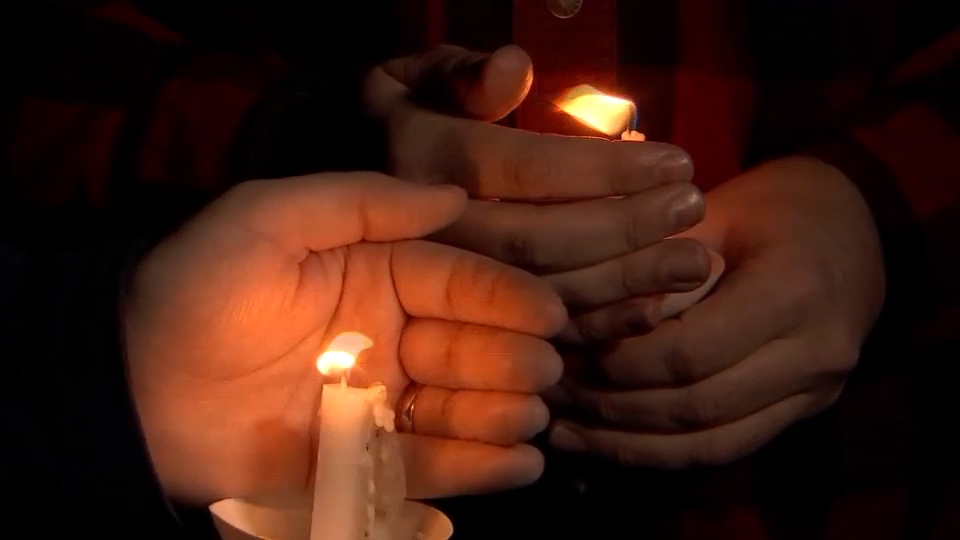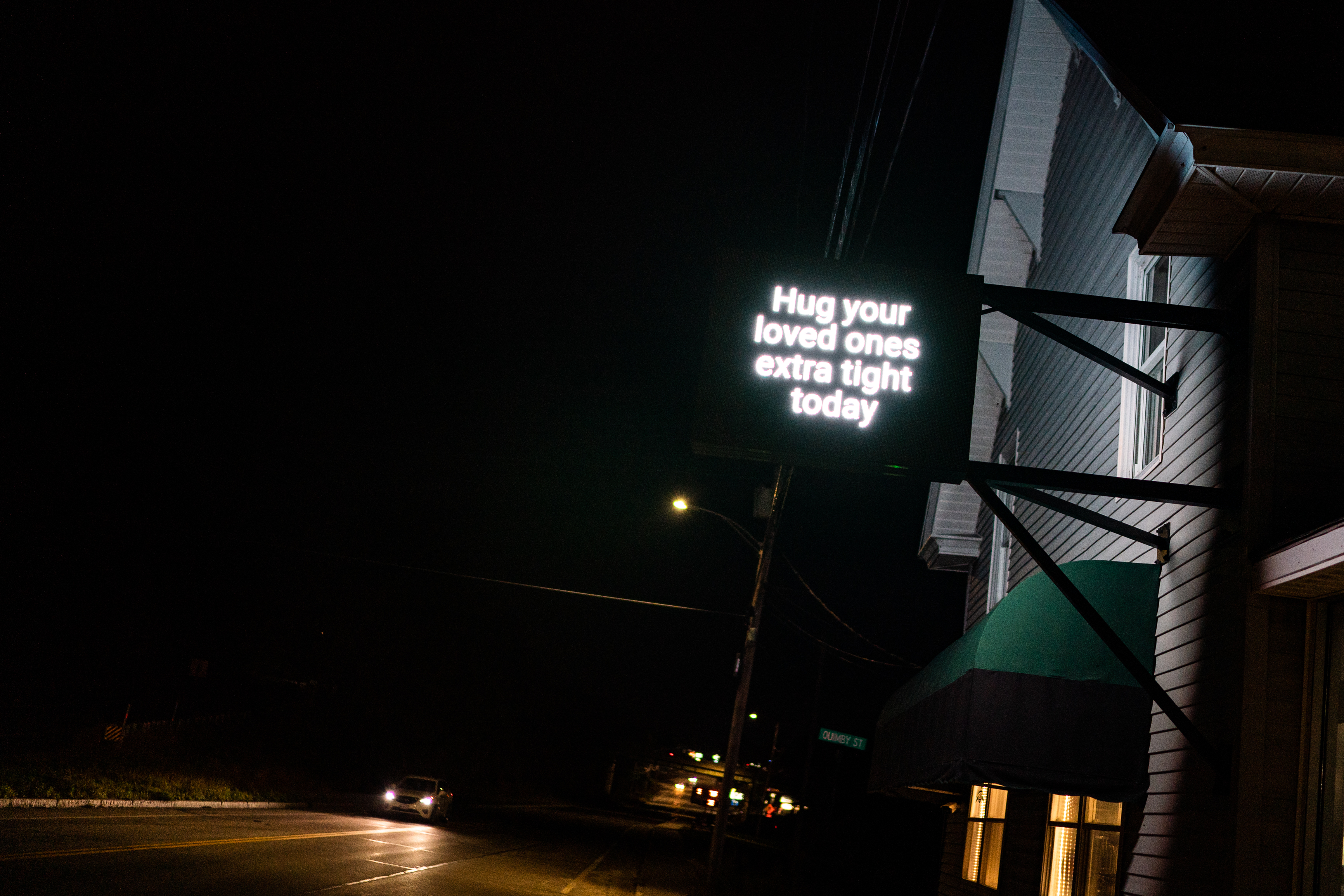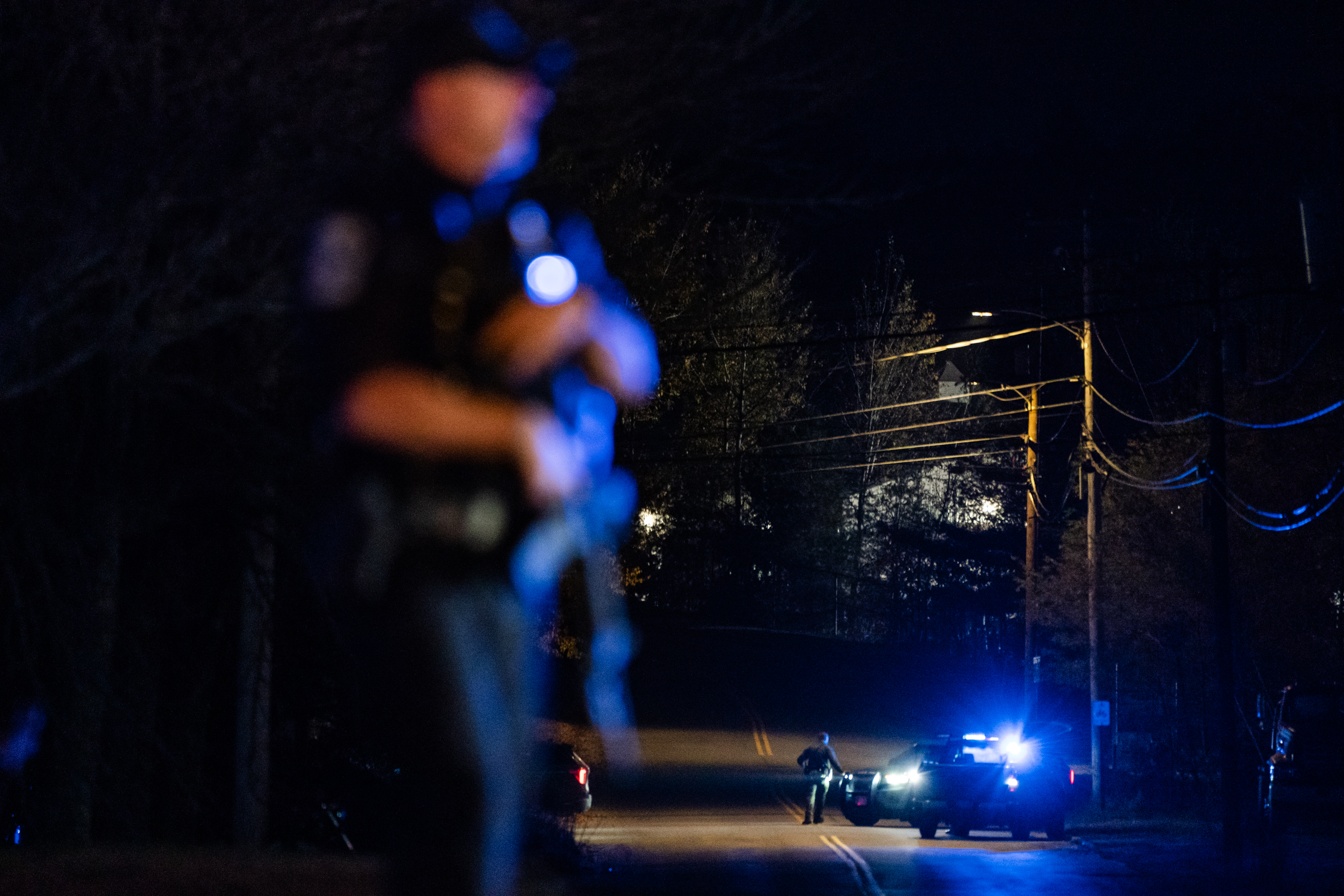Five months before the deadliest mass shooting in Maine's history, the gunman's family alerted the sheriff that they were becoming "concerned" about his deteriorating mental health while he had access to firearms, authorities said Monday.
After the alert, the Sagadohoc County Sheriff's Office reached out to officials of Robert Card's Army Reserve unit, which assured deputies that they would speak to him and make sure he got medical attention, Sheriff Joel Merry said.
The family's concern about the killer's mental health dated back to early this year, before the sheriff's office was contacted in May, marking the earliest in a string of interactions that police had with the 40-year-old firearms instructor before he marched into a bowling alley and then a bar in Lewiston last Wednesday, killing 18 people and wounding 13 others.
He was found two days later with a self-inflicted gunshot wound after an intensive search spanning two days that caused shelter-in-place orders and put residents on edge.
The shooter underwent a mental health evaluation last summer after he began acting erratically at an Army training facility in New York, officials said. A bulletin sent to police shortly after last week’s attack said he had been committed to a mental health facility for two weeks after "hearing voices and threats to shoot up" a military base.
Authorities have not said whether they believe the gunman planned the Oct. 25 rampage in advance. Nearly three months ago, he tried and failed to acquire a device used to quiet gunshots, according to a gun shop owner in Auburn.
Rick LaChapelle, owner of Coastal Defense Firearms, said the killer purchased a suppressor, also called a silencer, online and arranged to pick it up at his shop.
He already had submitted information to the federal government to purchase it, and federal authorities had approved the sale to that point, LaChapelle said.
When the gunman filled out the form at LaChapelle’s gun shop to pick up the silencer Aug. 5, he answered "yes" to the question: "Have you ever been adjudicated as a mental defective OR have you ever been committed to a mental institution?"
“As soon as he answered that ‘yes’ we know automatically that this is disqualifying, he’s not getting a silencer today,” LaChapelle said.
Silencers are more heavily regulated under federal law than most firearms. Federal law requires buyers to apply with the Bureau of Alcohol, Tobacco, Firearms and Explosives and be approved. The typical wait time is between six and eight months, said Mark Collins, federal policy director at the gun-violence prevention group Brady.
Photos: Lewiston, Maine, shooting leaves more than a dozen dead
After the bureau approves the application, the silencer is sent to a licensed firearm dealer, where the buyer is required to fill out another form required for any firearm purchase. The dealer then has to run a background check.
That form asks questions similar to the paperwork required to buy a gun. In the killer's case, he likely would have completed the original federal paperwork months before he was committed to the mental health facility in July.
LaChapelle said he does not know when the shooter made the online purchase.
He said the man was polite when notified of the denial, mentioned something about the military and said he would "come right back" after consulting his lawyer.
Investigators are facing increasing public scrutiny and still searching for a motive for the massacre but have increasingly focused on the killer's mental health history.
Police across Maine were alerted just last month to the "veiled threats" by the U.S. Army reservist. Two local law enforcement chiefs told The Associated Press that a statewide awareness alert was sent in mid-September to be on the lookout for him after he made threats against his base and fellow soldiers. But ultimately, after a visit to his home, police moved on.
The Army directed that he "should not have a weapon, handle ammunition, and not participate in live fire activity," according to Lt. Col. Ruth Castro, an Army spokesperson.
The future gunman was also declared "non-deployable due to concerns over his well-being," and his company commander was notified of the restrictions, Castro said in a written statement, adding that the Army Reserve Command Surgeon Office and medical management made multiple attempts to contact him.
The Army did not respond to questions about when those contacts were made.
On Monday, Gov. Janet Mills, a Democrat, held a news conference to provide an update on the response to the shooting. The conference turned contentious quickly when Mills declined to provide information about what the investigation has turned up so far.
Mills said state lawmakers would revisit Maine gun control laws. Proposals for tighter laws have stalled or failed in recent legislative sessions.
"I'm not going to stand here today and tell you I'm proposing X, Y and Z," she said. "I'm here to listen, work with others and get people around the table as promptly as possible."
The killer's body was found late Friday in a trailer at a recycling center in Lisbon Falls, but it was unclear when he died.
Authorities recovered a multitude of weapons while searching for the gunman and believe he had legally purchased them, including a Ruger SFAR rifle found in his car, officials said Monday. A Smith & Wesson M&P15 rifle and Smith & Wesson M&P .40-caliber handgun were with his body.
Residents of Lewiston returned to work Monday, the morning after coming together to mourn those lost in the shootings. More than 1,000 people attended Basilica of Saints Peter & Paul for a vigil in Lewiston. Some put their heads in their hands as the names of the people who died in Wednesday's shooting were read. Others quietly wept.
Hundreds more watched a livestream of the vigil shown on a huge screen in front of the church. Some held American flags, and others had lit candles in cups marked with the names of the dead and injured.
Meanwhile, Lewiston was slowly reopening. Lewiston Public Schools released a limited schedule for the week "with room for reflection as we move forward." Only the staff was returning Monday; students were due back Tuesday.
The deadliest shooting in Maine's history stunned a state of 1.3 million people that has relatively little violent crime and only 29 killings in all of 2022.
The Lewiston shootings were the 36th mass killing in the U.S. this year, according to a database maintained by the AP and USA Today in partnership with Northeastern University. The database includes every mass killing since 2006 from all weapons in which four or more people, excluding the offender, were killed within a 24-hour time frame.
More about last week's mass shooting in Maine
Whittle reported from Portland. Associated Press journalists David R. Martin and Matt Rourke in Lewiston, Maine, Lindsay Whitehurst in Washington, D.C., Kimberlee Kruesi in Nashville, Bernard Condon in New York and Michael Casey in Boston contributed.




